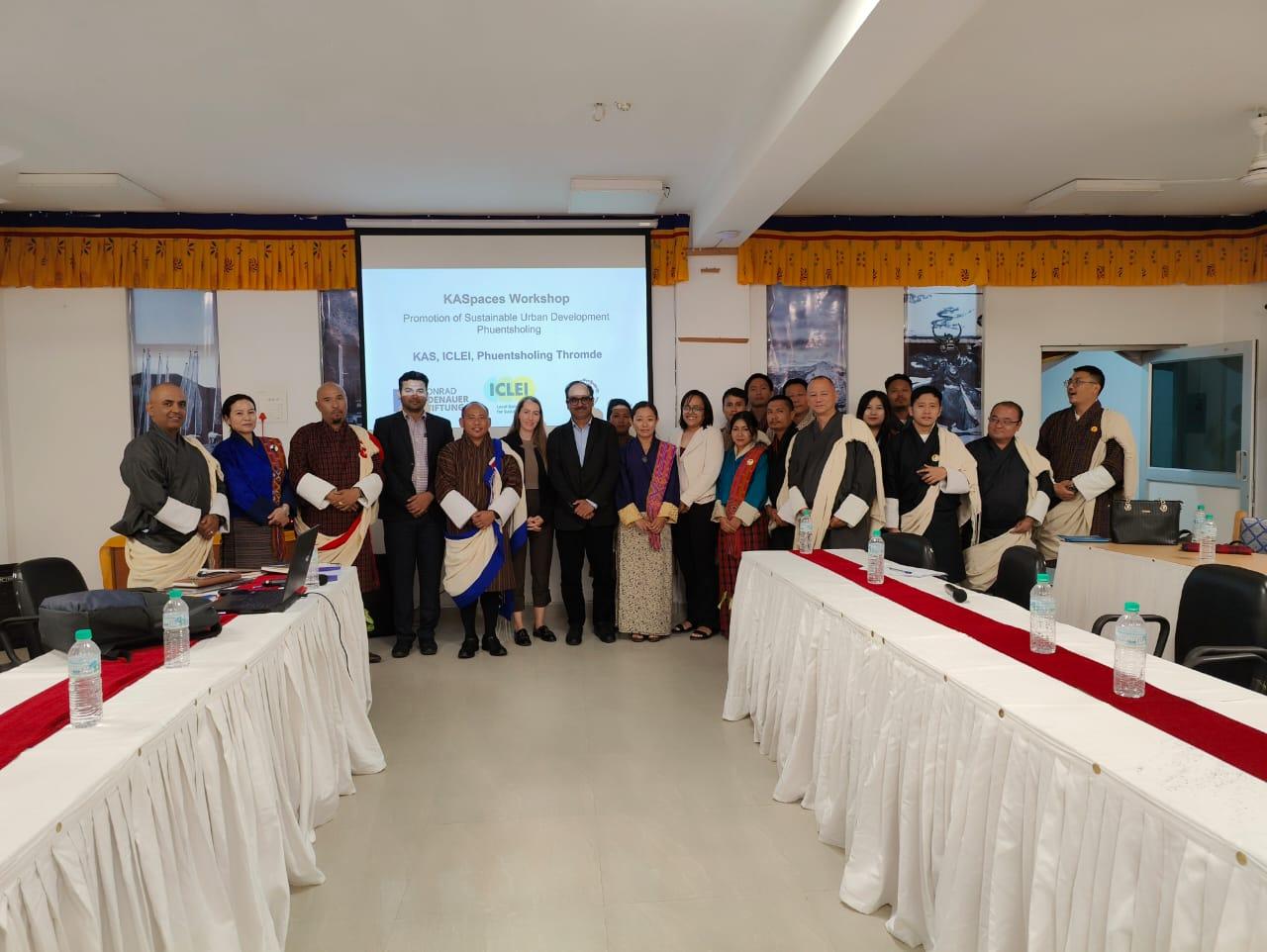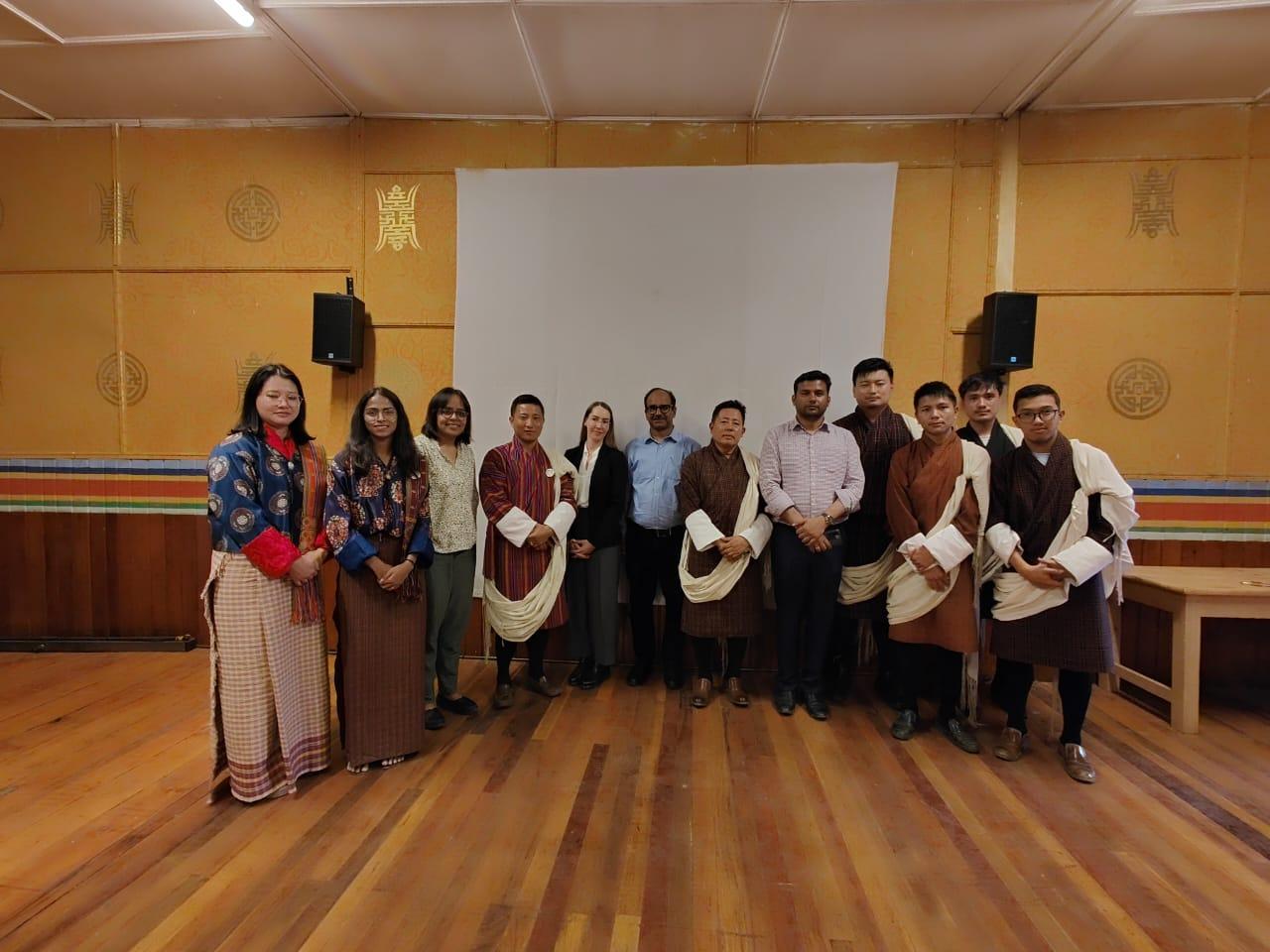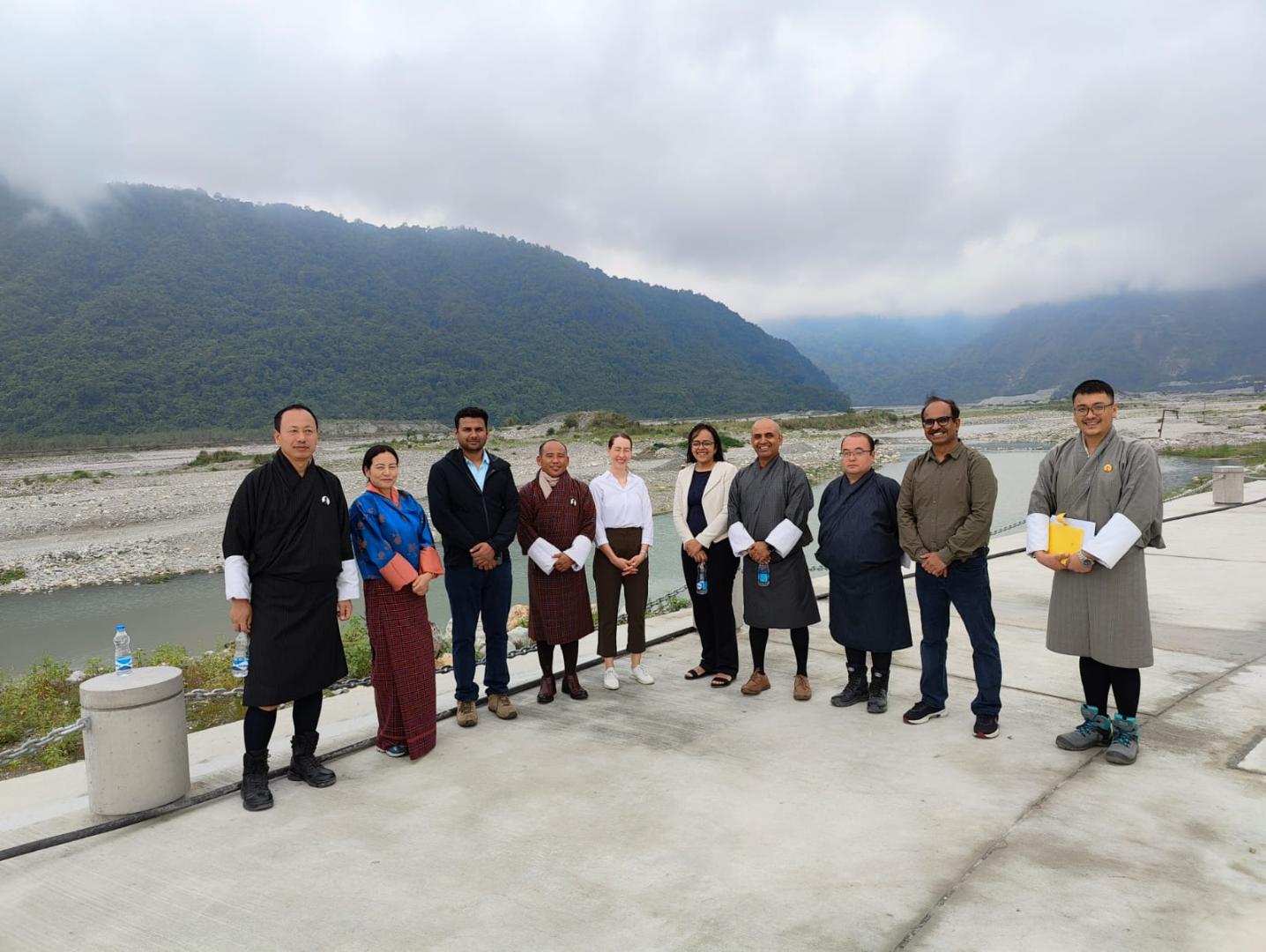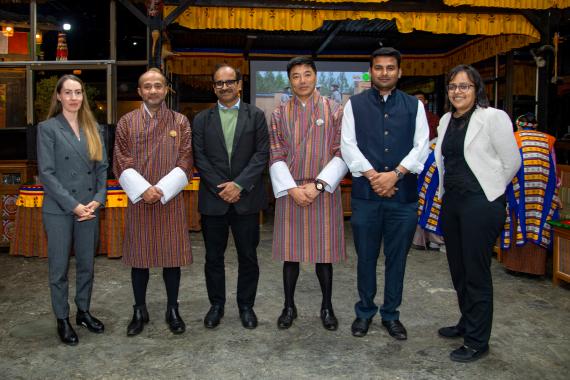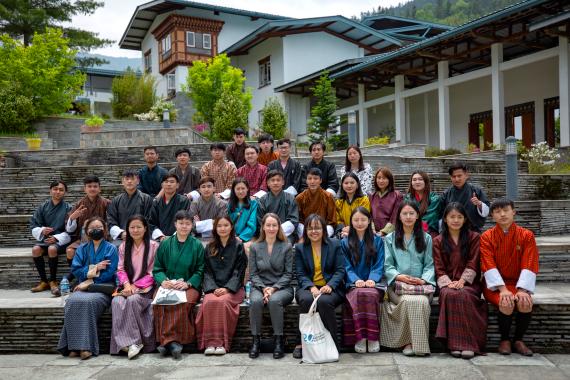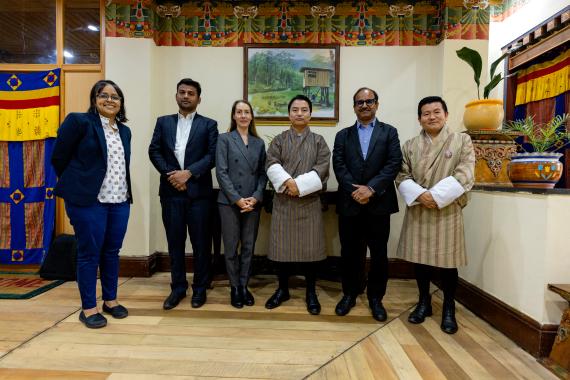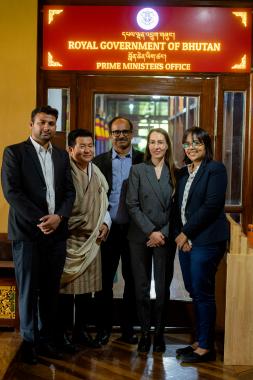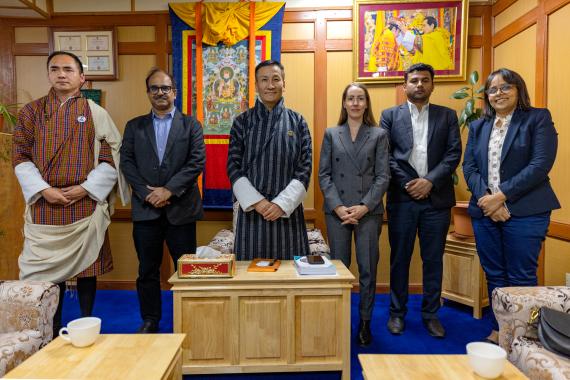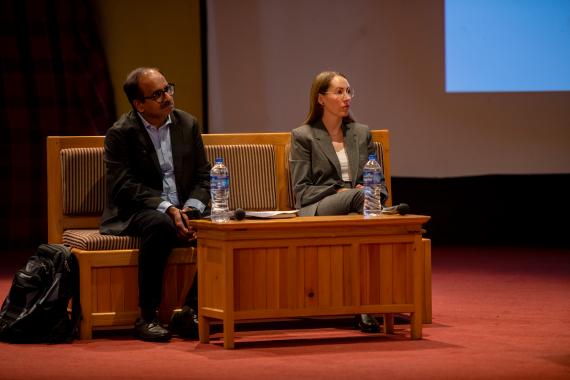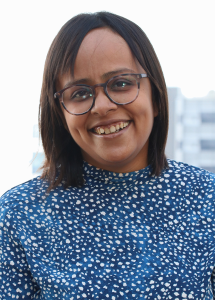The workshop series not only helped in fostering collaboration among diverse stakeholders, including government officials, academics, business leaders, civil society organizations, and local communities, but also contributed to the global discourse on sustainable development and the implementation of the Sustainable Development Goals. The workshops also highlighted innovative solutions for urban development across the region and enabled participants to discuss how they could work together to reinforce synergies in providing safe, inclusive, and sustainable cities.
This workshop series took place in the cities of Thimphu, Phuentsholing and Punakha of Bhutan. It brought together Mayors and elected officials of the local administration with other stakeholders, such as civil society organisations and the academia to share experiences and good practices used to face the challenges of today to ensure sustainable and resilient cities and human settlement. The workshops helped to identify key sustainable solutions of urban development including issues on internal migration, climate resilience, solid waste management, wastewater management, and sustainable transport with a link to Goal 11 “Sustainable Cities and Communities” of the SDG.
The KAS-ICLEI delegation also had meetings with the Prime Minister's Office and the Ministry of Infrastructure & Transport of the Royal Government in Bhutan. As unique as the sustainable development approach of Bhutan is, there is also much to share with the region due to common challenges.
The first workshop took place in Thimphu Town Council where there was an insightful exchange between various stakeholders on the best practices as well as challenges faced by the capital. Our Deputy Director Alina Reiss and Executive Director of ICLEI Emani Kumar also delivered lectures in the Royal Thimpu College of Bhutan, which was followed by a very interactive session with the students on their contribution to the achievements of the SDG in Bhutan. The first day of the workshop series concluded with a networking dinner graced by the Hon. Minister of Energy and Natural Resources Dasho Lyonpo Loknath Sharma and Hon. Mayor of Thimpu Mr Ugyen Dorji.
The second workshop in Bhutan was hosted by the Hon. Mayor of Phuentsholing, Dasho Uttar Kumar Rai and his team. In the workshop there was an interactive discussion with various stakeholders including civil society actors to understand and learn the best practices and challenges each town faces and to further understand their developing projects. The delegates were also taken to the Phuentsholing Town Development Project Area and Rinchending Gonpa NAPA slope Stabilization Project.
The SDG Ambassador Programme in Bhutan was concluded by the third workshop in the Punakha Administration. Once again, we had fruitful discussions with local government officials and representatives of the community about the requirements and challenges of sustainable development on the local level. Special priority was given to becoming a walkable community. This was portrait by a river front project, which combines recreation with safe and affordable vending opportunities for farmers.
The challenges and problems we face become more complex in this inter-connected world – such climate change, global health emergencies, peace, security and the economy among others – common problems need a more collaborative approach not only within states but also between states and between regions, to explore forward-looking, innovative and practical policies.
Germany is one of the only 53 nations the Kingdom of Bhutan holds close ties with. In March this year, the Prime Minister of Bhutan the honourable Dr Lotay Tshering visited Germany on his first ever official state visit to Berlin to meet with the German Chancellor and the German President. which is a clear sign of deepening the trusted relationship going forward. Germany and Bhutan have been collaborating for cultural preservation, with the most recent example being a joint project of the Bhutan-German Himalaya Society and the National Library of Bhutan to preserve traditional Bhutanese manuscripts. In addition to cultural preservation Germany and Bhutan’s main spheres of cooperation so far are climate, the environment and healthcare. The German project cooperation with Bhutan does not only run through the German Federal Ministries, such as the Ministry for Economic Cooperation and Development and the Ministry for the Environment and its implementing agencies but also takes place by the support of international organisations with their own multilateral programmes with Bhutan.
The workshop series not only helped in fostering collaboration among diverse stakeholders, including government officials, academics, business leaders, civil society organizations, and local communities, but also contributed to the global discourse on sustainable development and the implementation of the Sustainable Development Goals. The workshops also highlighted innovative solutions for urban development across the region and enabled participants to discuss how they could work together to reinforce synergies in providing safe, inclusive, and sustainable cities.
This workshop series took place in the cities of Thimphu, Phuentsholing and Punakha of Bhutan. It brought together Mayors and elected officials of the local administration with other stakeholders, such as civil society organisations and the academia to share experiences and good practices used to face the challenges of today to ensure sustainable and resilient cities and human settlement. The workshops helped to identify key sustainable solutions of urban development including issues on internal migration, climate resilience, solid waste management, wastewater management, and sustainable transport with a link to Goal 11 “Sustainable Cities and Communities” of the SDG.
The KAS-ICLEI delegation also had meetings with the Prime Minister's Office and the Ministry of Infrastructure & Transport of the Royal Government in Bhutan. As unique as the sustainable development approach of Bhutan is, there is also much to share with the region due to common challenges.
The first workshop took place in Thimphu Town Council where there was an insightful exchange between various stakeholders on the best practices as well as challenges faced by the capital. Our Deputy Director Alina Reiss and Executive Director of ICLEI Emani Kumar also delivered lectures in the Royal Thimpu College of Bhutan, which was followed by a very interactive session with the students on their contribution to the achievements of the SDG in Bhutan. The first day of the workshop series concluded with a networking dinner graced by the Hon. Minister of Energy and Natural Resources Dasho Lyonpo Loknath Sharma and Hon. Mayor of Thimpu Mr Ugyen Dorji.
The second workshop in Bhutan was hosted by the Hon. Mayor of Phuentsholing, Dasho Uttar Kumar Rai and his team. In the workshop there was an interactive discussion with various stakeholders including civil society actors to understand and learn the best practices and challenges each town faces and to further understand their developing projects. The delegates were also taken to the Phuentsholing Town Development Project Area and Rinchending Gonpa NAPA slope Stabilization Project.
The SDG Ambassador Programme in Bhutan was concluded by the third workshop in the Punakha Administration. Once again, we had fruitful discussions with local government officials and representatives of the community about the requirements and challenges of sustainable development on the local level. Special priority was given to becoming a walkable community. This was portrait by a river front project, which combines recreation with safe and affordable vending opportunities for farmers.
The challenges and problems we face become more complex in this inter-connected world – such climate change, global health emergencies, peace, security and the economy among others – common problems need a more collaborative approach not only within states but also between states and between regions, to explore forward-looking, innovative and practical policies.
Germany is one of the only 53 nations the Kingdom of Bhutan holds close ties with. In March this year, the Prime Minister of Bhutan the honourable Dr Lotay Tshering visited Germany on his first ever official state visit to Berlin to meet with the German Chancellor and the German President. which is a clear sign of deepening the trusted relationship going forward. Germany and Bhutan have been collaborating for cultural preservation, with the most recent example being a joint project of the Bhutan-German Himalaya Society and the National Library of Bhutan to preserve traditional Bhutanese manuscripts. In addition to cultural preservation Germany and Bhutan’s main spheres of cooperation so far are climate, the environment and healthcare. The German project cooperation with Bhutan does not only run through the German Federal Ministries, such as the Ministry for Economic Cooperation and Development and the Ministry for the Environment and its implementing agencies but also takes place by the support of international organisations with their own multilateral programmes with Bhutan.







